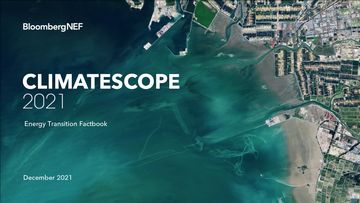Nicaragua
With a cumulative score of 1.51, Nicaragua ranks number 47 among emerging markets and number 76 in the global ranking.
- Emerging markets
- Americas
1.68 / 5
Power score
1.12 / 5
Transport score
Buildings score
Only 56 markets (28 emerging markets) are scored on the Buildings sector. See the full list on the methodology page.
Low-carbon strategy
Net-zero goal and strategy
Nicaragua has neither set a net-zero emissions goal nor outlined a long-term low-carbon strategy.
Nationally Determined Contributions (NDC)
Nicaragua submitted an updated ‘nationally determined contribution’ (NDC) – its plan to help achieve the goals of the Paris Agreement – in December 2020. It aims to reduce the country’s emissions by 10% by 2030 versus a busines-as-usual scenario. The sectors being targeted for mitigation are energy, industry, and forestry and land use change.
Fossil fuel phase-out policy
There is no fossil fuel phase-out policy in Nicaragua.
Power
Power policy
Under the country’s updated NDC, it has set an ambition for 65% of electricity generation to come from renewables by 2030, up from the previous target of 60%. In 2019, renewables accounted for 58% of Nicaragua’s generation mix, with wind and geothermal being the biggest contributors, at 16% and 17%, respectively. Fossil fuel-powered plants still play an important role in the country’s power sector and Nicaragua says that it will look to replace higher emission coal and diesel generation with natural gas.
Renewable energy developers enjoy a range of tax breaks in Nicaragua, including exemptions on import duties, value-added taxes, and income taxes. Tax incentives to aid the development of renewables projects have been extended until 2023.
Net metering rules allow owners of solar PV and other renewables systems with up to 5 megawatts (MW) of capacity to sell surplus power to distribution companies.
Power policies
Power prices and costs
Commercial power prices in Nicaragua rose by 3% between 2019 and 2020, reaching $280.17 per megawatt-hour (MWh). This is the highest in Latin America. Meanwhile industrial tariffs rose by 2% across the same period to $204.72/MWh, and Nicaragua’s residential power prices are in the top quartile in the region. Continued reliance on imported fossil fuels for generation is largely to blame for the high cost of power in the country. Renewables development represents a potential path to greater energy independence and cheaper power.
Power market
Nicaragua's power sector is unbundled and distinct actors – both state- and privately owned – participate in the generation and distribution sectors. At least 18 companies hold active generation contracts today for projects they own. Nicaragua is part of the Central American Electrical Interconnected System (SIEPAC) and is connected to El Salvador, Guatemala, Panama, Costa Rica, and Honduras by transmission lines.
Installed Capacity (in MW)
Electricity Generation (in GWh)
Utility privatisation
Which segments of the power sector are open to private participation?
Wholesale power market
Does the country have a wholesale power market?
Doing business and barriers
While Nicaragua does offer tax incentives for renewables, a general lack of direct policy support will likely inhibit the sector’s growth. Very high power prices also make it difficult to attract new business to the country, and the fragile condition of the transmission system jeopardizes service reliability.
Currency of PPAs
Are PPAs signed in or indexed to U.S. Dollars or Euro?
Bilateral power contracts
Can a C&I (Commercial and Industrial) customer sign a long-term contract (PPA) for clean energy?
Bilateral power contracts
Can a C&I (Commercial and Industrial) customer sign a long-term contract (PPA) for clean energy?
Fossil fuel subsidies
Does the government influence the wholesale price of fossil fuel (used by thermal power plants) down through subsidies?
Fossil fuel taxes
Does the government influence the wholesale price of fossil fuel (used by thermal power plants) up through taxes?
Bilateral power contracts
Can a C&I (Commercial and Industrial) customer sign a long-term contract (PPA) for clean energy?
Transport
EV market
The government has yet to implement any substantive policy support in this sector and the electric vehicle (EV) market remains at an early stage.
EV policy
The government has yet to implement any substantive policy support in this sector and the EV market remains at an early stage.
Transport policies
Fuel economy standards
Does the country have a fuel economy standard in place?
Buildings
Buildings market
Nicaragua passed Law 956 on energy efficiency in 2017, establishing a legal framework to promote the rational and efficient use of energy. The country has several energy efficiency and improvement planning programs which aim to reduce energy consumption, mainly from refrigeration, lighting, and various consumer sectors.
Energy performance standards
Are there minimum energy performance standards for buildings?
Energy efficiency plan
Does the country have a national energy efficiency plan?
Buildings policy
The government has yet to implement any substantive policy support in this sector and the low-carbon heat market remains at an early stage.

